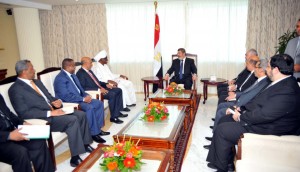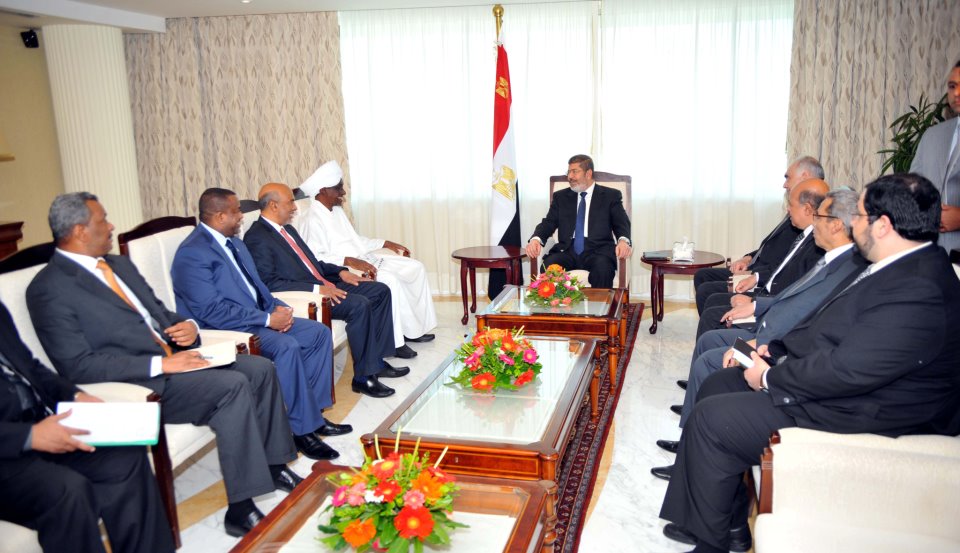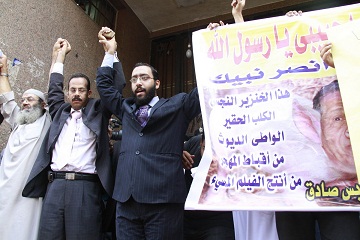
(Photo Presidency Hand out )
Presidential spokesperson Omar Amer on Sunday denied rumours surrounding a proposed deal between President Morsi and his Sudanese counterpart Omar Bashir that would give the Hala’ib and Shalateen territories to Sudan.
He said the issue was not brought up during Morsi’s two-day visit to Sudan.
“The president’s visit focused on enhancing bilateral relations and achieving genuine common economic agreements,” said Amer in a press conference.
Presidential aide on foreign affairs Essam Haddad also commented on the issue to state-run news agency MENA, saying: “The Egyptian position on Hala’ib and Shalateen has not changed.”
During his trip to Sudan, Morsi, who was accompanied by a number of ministers, met with President Bashir and Vice-President Ali Taha. After the trip, rumors spread on social media that Morsi pledged to make an effort to return the Hala’ib and Shalateen territories to Sudan. The disputed areas, which straddle the border with Sudan, are considered Egyptian lands.
The trip resulted in a set of agreements between Egyptian ministers and their Sudanese counterparts in the fields of agriculture, trade, industry, supply, tourism, and transportation.
In a press conference, Minister of Industry and Foreign Trade Hatem Saleh said he agreed with his Sudanese counterpart on establishing 500 Egyptian factories in Sudan to produce organic fuel and mineral products.
In the field of transportation, ministers have agreed to inaugurate two routes to facilitate trade exchanges, since the Nile is currently the only legal route for business trips between Egypt and Sudan. “We have also agreed on a preliminary deal to establish a 500km railway from Aswan in Upper Egypt to connect with Wadi Halfa in Sudan,” said the Minister of Transportation.
Minister of Supply and Internal Trade Bassem Ouda also highlighted the results of the visit within his field. On the struggle of many Egyptians to obtain meat, Ouda said Egypt will import 5,000 cows from Sudan. Egypt receives 5% of its meat supply from Sudan, but Morsi called upon the minister to increase this amount to 20%.
The respective agriculture ministers agreed to start a farm for researching agricultural products, particularly wheat. Egyptian experts also agreed to help the Sudanese government to eradicate locusts from their agricultural lands.



